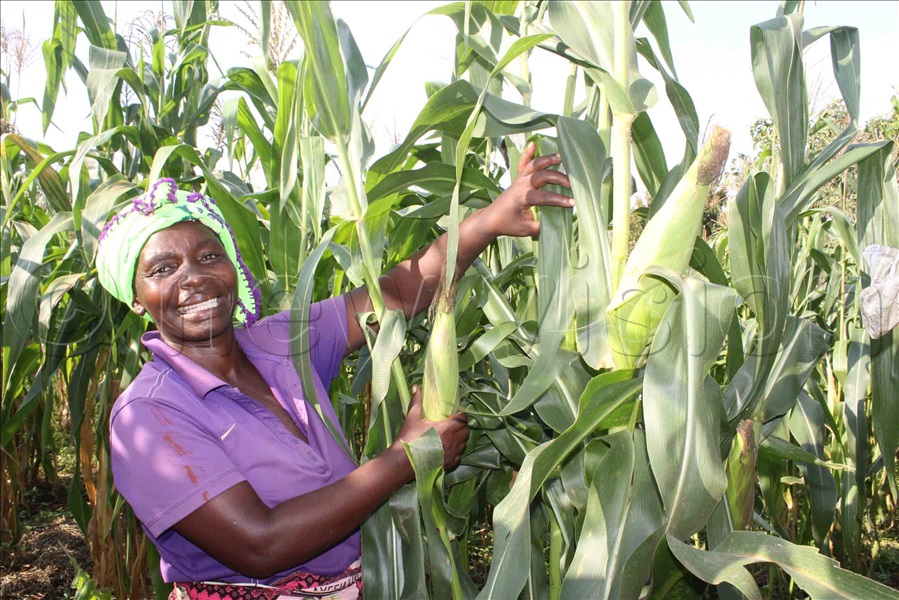By Andrew Masinde
Maize is a major food crop worldwide. Every year, 2.6 billion tons of cereal are produced globally. Of this 2.6 billion, maize constitutes 1.3 billion, followed by 750 million tons of wheat and 480 million tons of rice.
Many have ventured into maize production with hopes of making lots of money. However, many tend to fail. This is because some do not follow certain procedures required to harvest big.
Many hurry into borrowing money to invest in the venture without doing enough research on what is needed to succeed and they have ended up making losses.
Fred Masai, a farmer decided to borrow sh3m to invest in maize production. His hopes were high after being convinced by a friend that there is quick money in maize farming.

He was told that if he invested sh3m, in four months he would make sh10m.
Without any research, he rushed to a saving scheme from where he borrowed the money.
He picked part of the money to rent three acres of land at sh600, 000. To plough the three acres, he used sh360, 000.
After he bought 42 kg of maize seed with each kilogram costing him sh10, 000 hence spending sh420, 000.
To have good yields, Masai says he bought fertilizer and on each acre, he used 150 Kg and they cost him sh660, 000.
When the time came for planting, he used 14 casual workers who he paid sh280, 000 (each was paid sh20, 000).
At 14 weeks, he got eight people to weed the maize hence spending sh160, 000 for 3 acres.
He also bought three 50kg bags of urea fertilizer to help boost the maize and for three bags they cost him sh750, 000. The four casuals who helped him to spread the garden were paid sh60, 000 for all three acres.
When the maize was 28 weeks, he also got eight casuals who weed the maize the second time, they were paid sh160, 000 (each getting sh20, 000) for the three acres.
When the maize was ready for harvest, he employed eight casual workers to harvest the maize and he spent sh80, 000 for the three acres.
After, he hired a maize sheller, and for each 100 kg bag, he was charged sh3000. From three acres, they shelled 51 bags of maize which cost him sh153, 000.
He then parked the maize in the sacks of 100kgs and each cost him sh1200, he bought 52 bags so he spent sh62, 400.
He then transported the maize to the seed store and paid sh80, 000 for the truck. In the whole process, Masai says he invested sh3, 825, 400.
“I wanted to keep the maize until when the price was good, however, the maize was attacked by weevils just after one month so I was forced to sell the maize at sh900 per kg. I got sh4, 590, 000 from the harvest,” he says.
He revealed that he paid sh3.2m (sh200, 000 as interest for four months) meant for the SACCO.
Masai says after everything, he remained with sh1, 390, 000 as profit.
“It was like a waste of time for me because I did not get what I expected. But after moving to many saucerful farmers, I realized to gain much from maize production, you have to invest but also opt for cheaper methods,” he said.
What needs to be done
Joel Cherop, a large-scale farmer in Kween district advises all farmers who want to enter into commercial grain and cereal farming to ensure that they have good money.
He said many people think commercial farming is just for waking up and going to the garden, which is wrong.
He advised that you need to have money that will help you produce on large scale.
“You also have to be patient with the harvest such that you do not sell during the harvest seasons when prices are low. Instead, store your produce in clean, aerated rooms, free from rodents, and above all ensure that you keep properly dried and clean produce,” he said.
He calls on the government to ensure that it introduces efficient subsidy schemes for agro-inputs such as agrochemicals, and seeds among others.
For small-scale farmers, he advises them to endeavour to use organic fertilizers such as livestock manure and post-harvest crop waste which can save them the high costs of synthetic fertilizers.





